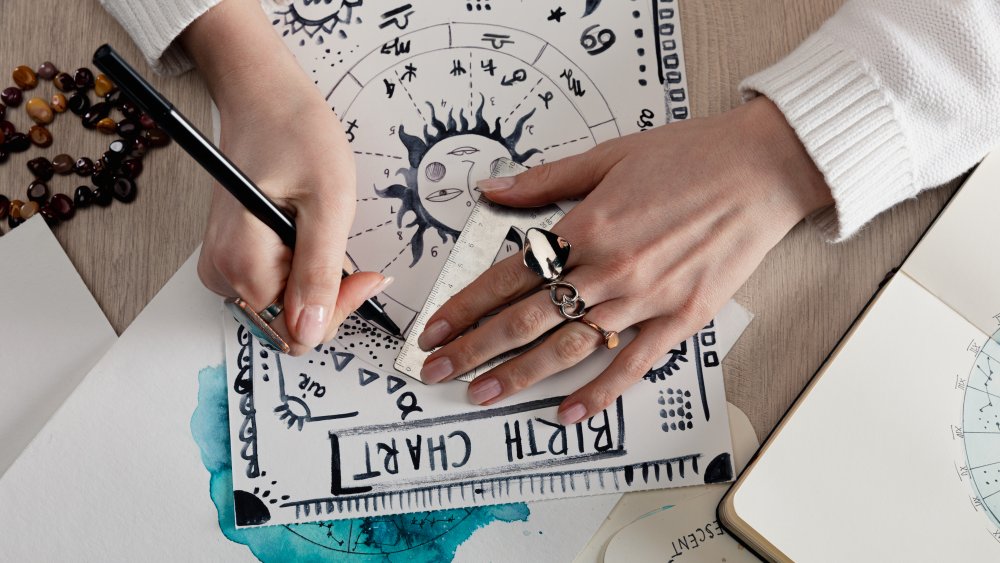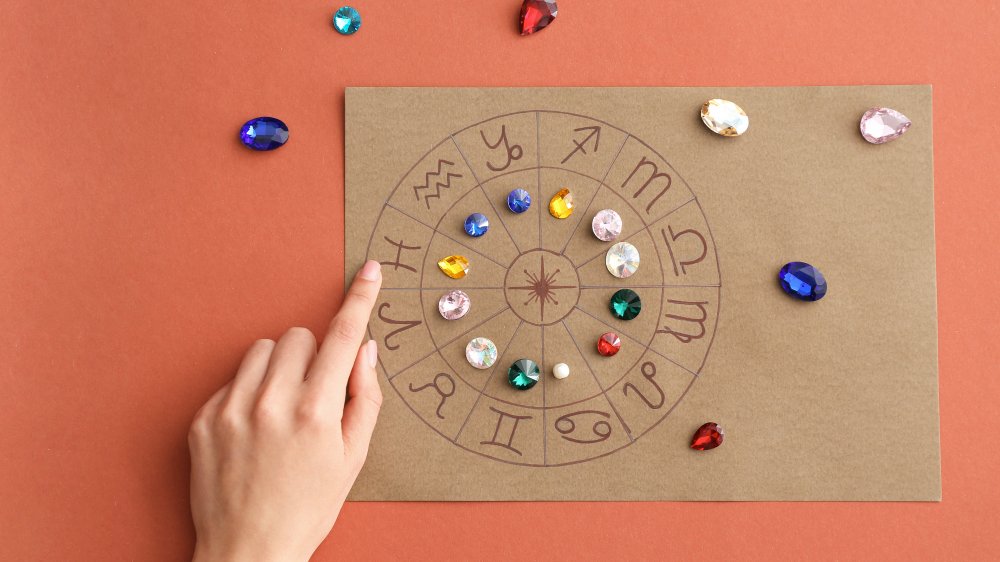What Is A Birth Chart And How Do You Read One?
After you have dabbled in the shallow waters of astrology for a while, it might be time to dive deeper and learn more. While horoscopes and astrological compatibility are enlightening, having your birth chart drawn up is even more illuminating because it is much more thorough. Birth charts, sometimes called natal charts, use some specific information like the day, location, and the exact time you were born to outline exactly where the planets were at the precise moment you entered the world (via Well + Good).
Because birth charts paint a wider picture, it is important to understand each component of the chart to be able to weave the pieces together, so you can understand yourself and how you move through the world (via Astrolibrary).
Luckily, you can get free birth charts online, or you can visit an astrologer who can draw yours up for a fee if you prefer. Either way, it takes time to understand how to read a chart with more depth. According to astrologer Janelle Belgrave, "Reading about a list of traits or fatalistic predictions out of context can create a great deal of misunderstanding and/or fear that an astrologer can walk you through" (via Refinery29). That's why it can be helpful to start with a few basics on your own until you can actually visit an astrologer for interpretation.
Focus on these four placements to begin with
It seems most people want to make their first acquaintance with their birth chart to find out their moon and rising signs. However, there are four specific placements you should focus on to get an overall snapshot of your birth chart, according to Astrolibrary.
The first placement to assess is, in fact, your rising sign because it portrays how you act in your day-to-day life. The next thing you want to study are which planets are placed in conjunction with any of the major angles such as ascendent, midheaven, or descendant. This combination heavily influences a person and can even overshadow your sun sign.
Not everyone has planets in conjunction with one or any of the major angles. That's why it's also vital to check for planets in conjunction with the sun. The planet that is in conjunction with the sun will highlight that planet's qualities in addition to your sun sign.
Finally, if you don't have either the second or third placements mentioned, then look at your tightest major aspect with an inner planet such as the Sun, Moon, Mars, Venus, Mercury, Jupiter, or even Saturn. This will be the aspect with the smallest orb in your natal chart, but it will be a great influence in your life. So look for a short connection from one inner planet to another planet, even an outer one.
Remember that this reading a birth chart isn't easy, so have patience, or enlist the help of a professional.

